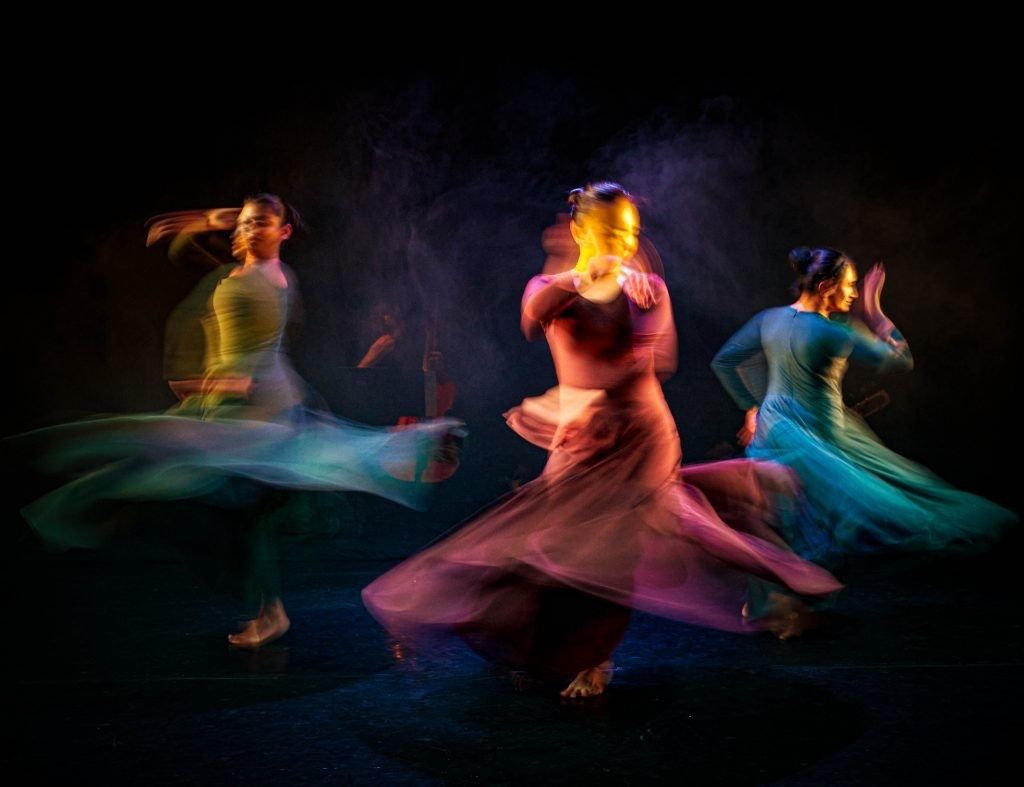ACCLAIMED dancer and choreographer Amina Khayyam has made a name for herself with eye-catching work that expands the horizons of Kathak.
She continues that run of impressive projects with her latest choreographed work Kathak Monologues, which has a series of short dance pieces developed in workshops with women’s groups that tackle challenging themes, including domestic abuse, and sexuality. She has assembled talented dancers and musicians for the show.
Eastern Eye caught up with the Kathak maestro to discuss the new show, live performance, creative inspirations, and key advice for young dancers.
How much does performing live mean to you?
It means a great deal to me. An essential part of Kathak is to perform to a live audience. The interaction with musicians and the audience is a unique part of Kathak dance. Being a Kathak dancer also means a command on stage as well as, having control over music, techniques and demand the audience’s full attention. To achieve these qualities, it’s vital to perform live as often as possible. It is the only way to gain experience and mature as a performer.
What has been your most memorable live performance?
It is difficult to name one single performance but it’s always very humbling when you see a reaction from audiences, like once during a curtain call after the performance of Slut at the Edinburgh festival, an audience member was sobbing while clapping; I just had to come back on stage to give her a hug.
How do you feel being on stage?
It’s an experience like no other, knowing the audience are there to see you and more importantly there because of the subject of the work.
Tell us about Kathak Monologues?
Kathak Monologues was conceived originally as I wanted to transition from being a performer into focusing more on choreography for other dancers. We also wanted to introduce new emerging dancers to our company work. Kathak was originally a solo art form, and my motivation was to bring many individual contemporary stories that affect our lives in our society today. All the pieces developed as a result of outreach work with women groups in the communities.
What inspired Kathak Monologues piece You & Me in particular?
During my regular workshops with women’s groups, I often come across stories about women who are married to LGBTQ men. Trapped and unable to leave the marriage, neither can they tell anyone about her situation as the husband hasn’t discussed his sexuality. Being gay is still not openly accepted in these communities, which makes it harder for gay men and women to live their lives as a gay person. The family pressure of getting married and continuing the bloodline often makes men marry, yet they continue to live a double secret life away from their families. Sadly, it’s the women who are trapped and unable to leave the marriage. So, I felt compelled to tell the story from their perspective.

Who are you hoping connects with this show the most?
Both men and women from a south Asian background as well as the general public.
Which is your own favourite moment in the show?
I just love watching the dancers put all their trust in me and perform the stories with full commitments. I know it’s not always easy because of the subject.
What inspires you creatively today?
The outreach work I do with women inspires me to make the work I do. The stories they share and trust me with is so humbling. When they come to the theatre to see what I’ve done with their stories gives me great pleasure, knowing they trust me to tell their stories with sincerity. Seeing and hearing about the inequality between sexes, and the wealth of tools and techniques Kathak dance and music offers always gives me the inspiration, not just to create stories in movements but also create music.
What key advice would you give a young dancer?
Perform at every opportunity to gain stage experience, work with other choreographers before setting up your own companies. Watch performances, not just dance but of other theatre disciplines. To enhance your dance practice, take up other physical exercises, which will also help build strength and stamina. Healthy eating is a must. Believe in yourself and go for dance as a profession but know that it won’t be an easy journey. There will be many challenges, but it’s one of the most rewarding professions.
Why should people come to watch Kathak Monologues?
Because we create original work and it is unique, presented with live music with world-class musicians like Debasish Mukherjee on tabla, Jonathan Mayer on sitar and Iain McHugh on cello. The shows will be a treat for both dance and music lovers as well as make you think.
Kathak Monologues is being staged at Warwick Arts Centre, Coventry CV4 7AL on Thursday February 16. Visit www.warwickartscentre.co.uk and aminakhayyamdance.co.uk for details.
